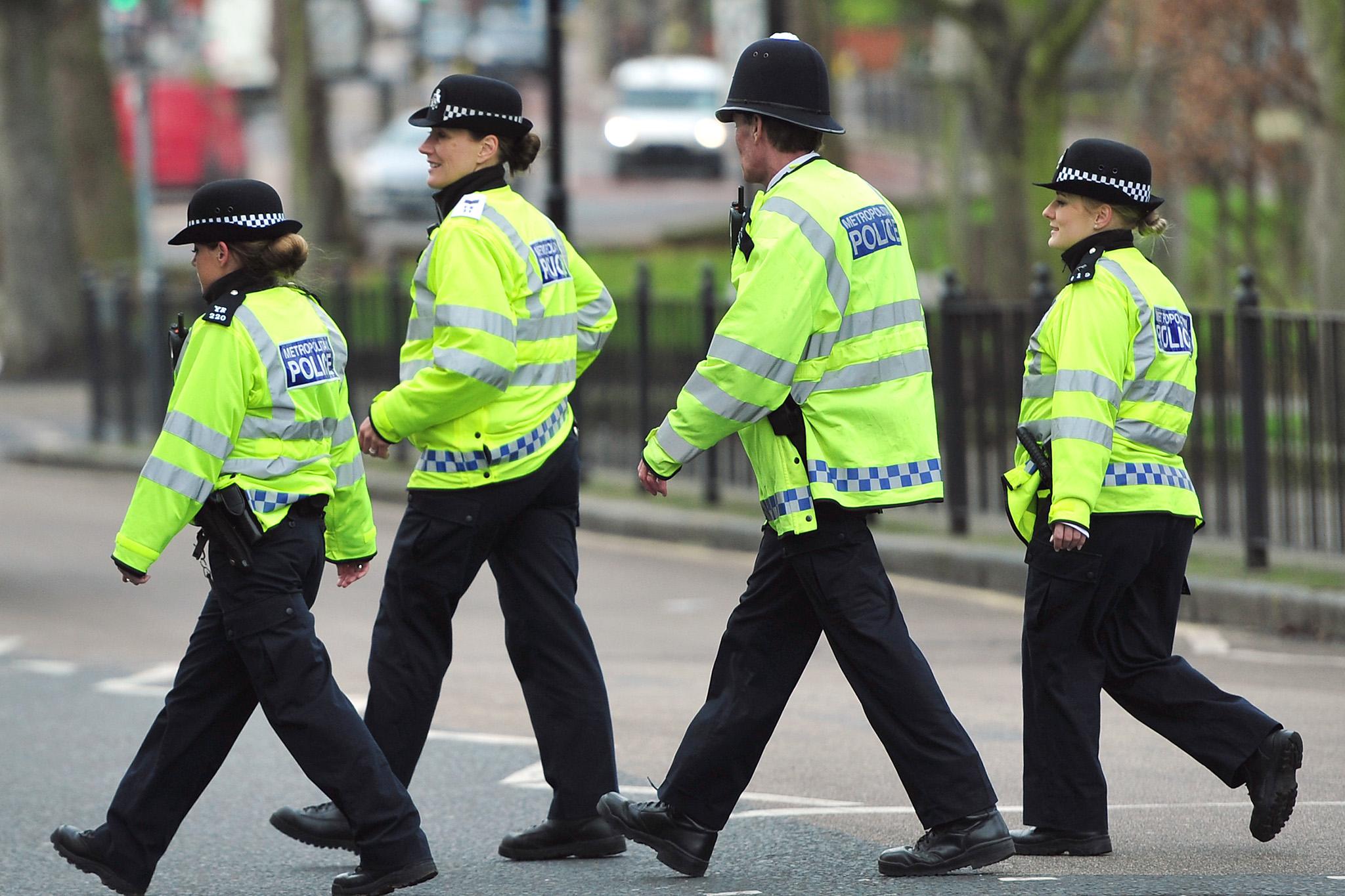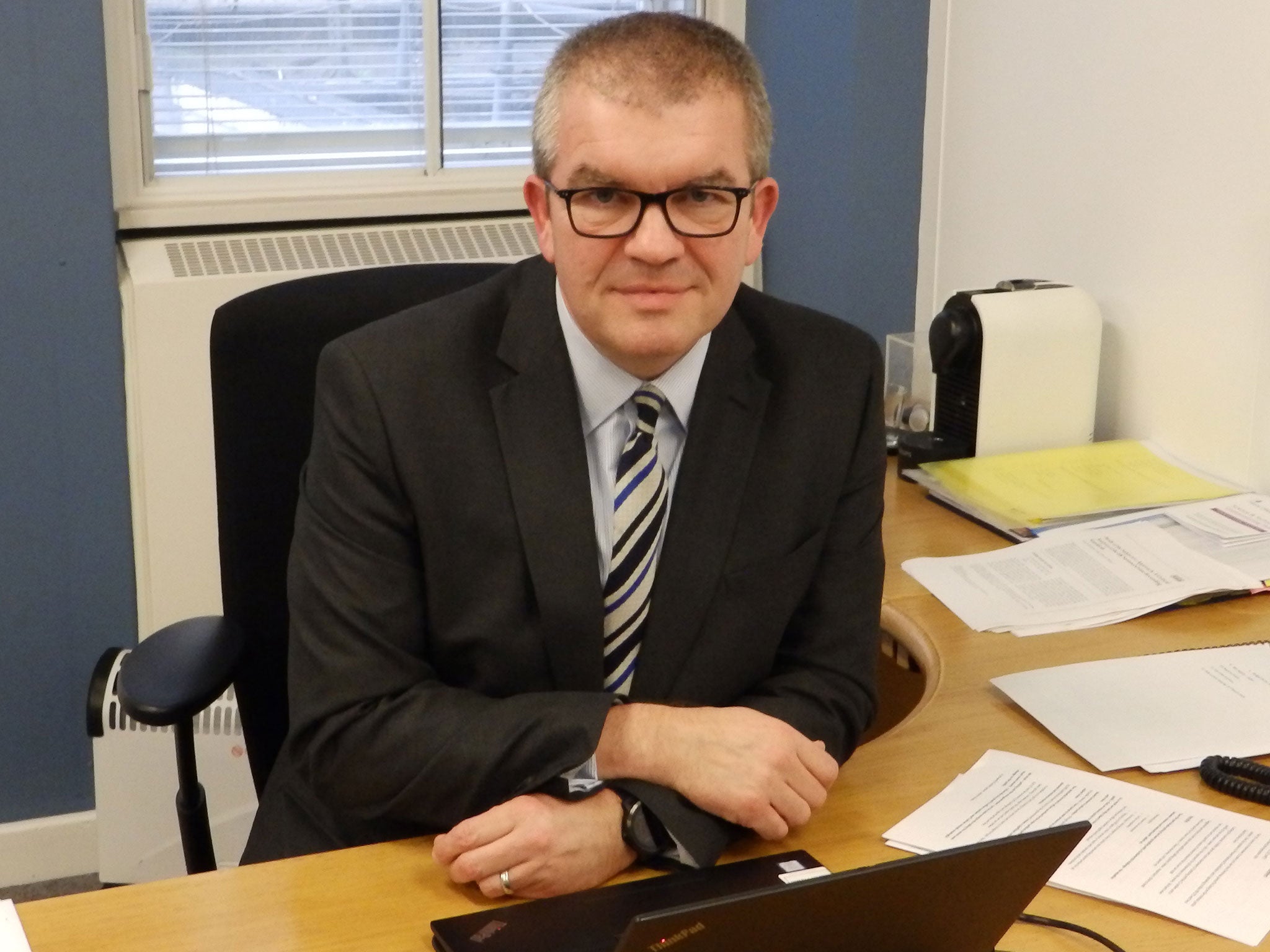Boris Johnson’s promise of 20,000 officers isn’t enough to solve crime problems, says Britain’s most senior police chief
Exclusive: National Police Chiefs’ Council chair warns that rising crime and falling prosecutions cannot be stopped by increasing police funding alone

Your support helps us to tell the story
From reproductive rights to climate change to Big Tech, The Independent is on the ground when the story is developing. Whether it's investigating the financials of Elon Musk's pro-Trump PAC or producing our latest documentary, 'The A Word', which shines a light on the American women fighting for reproductive rights, we know how important it is to parse out the facts from the messaging.
At such a critical moment in US history, we need reporters on the ground. Your donation allows us to keep sending journalists to speak to both sides of the story.
The Independent is trusted by Americans across the entire political spectrum. And unlike many other quality news outlets, we choose not to lock Americans out of our reporting and analysis with paywalls. We believe quality journalism should be available to everyone, paid for by those who can afford it.
Your support makes all the difference.Boris Johnson’s promise of 20,000 police officers won’t tackle rising crime rates and falling prosecutions without further investment in the austerity-hit justice system, Britain’s most senior police chief has said.
In his first major interview since becoming chair of the National Police Chiefs’ Council (NPCC), Martin Hewitt said mental health provision and public services must be boosted to prevent crime.
“Bringing in the 20,000 is not the answer to all the challenges we have around policing,” he told The Independent.
“The challenges we face more broadly as law enforcement are not simply about the number of officers.”
Crime has been rising for several years across England and Wales, with knife crime hitting a new record last year.
At the same time, the number of people punished has hit a record low and prosecutions have plummeted to just 7 per cent of all reported offences.
Mr Hewitt said it was “very difficult” for police to tell devastated victims that perpetrators would not be charged, and that years of rising demand and falling resources had damaged officers’ mental health.
“You can’t change those ultimate outcomes by looking at one part in that system,” he added. “Every other part of that criminal justice system has suffered significant resource cuts over the last period of time, some more than policing. All of that has an impact.”
Mr Hewitt said the depth of budget cuts to policing had put the service’s “core contract” with the British public at risk, after residents in some towns set up their own patrols.
“We’ve got a great relationship but it has been sorely tested,” he admitted, saying that forces had been unable to fulfil some of their core duties to prevent crime and respond to calls.
“People need to see that the system is protecting them and is dealing appropriately with people who offend [but] the equation between our resources and the demands being placed on us have been getting harder and harder to square.”
Mr Hewitt said the recruitment of 20,000 officers, including 6,000 scheduled by March 2021, would ease pressure but that new constables would not immediately solve shortages in detectives and more senior ranks.
Both Mr Johnson and rival Jeremy Hunt committed to the uplift during last summer’s Conservative leadership campaign, after years of ignored calls for the government to reverse funding cuts.
Mr Hewitt, a former Metropolitan Police assistant commissioner, said the U-turn was “frustrating” for senior officers who had been forced to slash their own forces.

“We’ve been having to make really, really challenging decisions about how to resource the service and what we do and don’t do,” he added. “There are lots of people who are frankly quite bitter.”
He called for the government to increase funding for community services, mental health provision and youth services to prevent people falling into crises, addiction and lives of crime, and ultimately placing more demand on police.
“We have stepped into places because others are not able to,” Mr Hewitt said.
“Police have always been the service of the last resort, but increasingly we’ve been the one of first resort as well.”
A government spokesperson said: “The government is delivering on the people’s priorities by recruiting 20,000 extra police officers over the next three years and putting violent criminals behind bars for longer.
“6,000 of these additional officers will be recruited by March 2021 as part of the unprecedented drive to increase their ranks.
“We have also announced a royal commission to improve the efficiency and effectiveness of the criminal justice process and are investing billions in improving mental health services.”